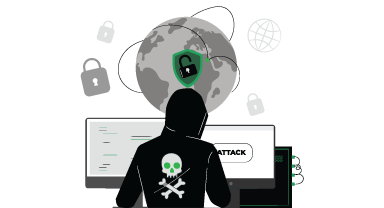RiskPedia is a comprehensive online resource designed to help businesses, especially small and medium-sized businesses (SMBs), understand and implement effective risk management and cybersecurity practices. It covers essential topics like asset management, auditing, compliance, cybersecurity, governance, risk management, and standards & frameworks, providing a foundation for companies to build their security strategies upon.
In addition to these foundational topics, RiskPedia dives into the significance of the Fourth Industrial Revolution and its impact on cybersecurity, emphasizing the importance of being prepared in an era of increasing digital interconnectivity. The platform also highlights the role of threat intelligence in staying ahead of potential cyber threats.
Targeted at C-level executives and IT professionals, RiskPedia aims to demystify the complex world of digital risk and offer straightforward, actionable guidance. It serves as a go-to guide for organizations looking to bolster their cyber defenses, ensure compliance with relevant regulations, and safeguard their digital assets against emerging threats. With its focus on practical insights and industry best practices, RiskPedia is an invaluable resource for anyone looking to enhance their organization’s cybersecurity posture.
The Fourth Industrial Revolution
What you will learn
Implementing a Robust Cybersecurity Framework
For SMBs, adopting a cybersecurity framework tailored to their specific needs is crucial. RiskPedia provides guidance on selecting and implementing frameworks that align with the business’s size, industry, and unique risk profile. This approach ensures that cybersecurity efforts are both manageable and effective, focusing on protecting critical assets without overwhelming resources.
Regulatory Compliance and Cybersecurity Hygiene
Understanding and adhering to regulatory requirements is a significant challenge for many SMBs. RiskPedia breaks down complex regulations into understandable segments, offering SMBs a roadmap to compliance and security baseline. Additionally, it emphasizes the importance of basic cybersecurity hygiene—such as regular software updates, strong password policies, and employee training—as foundational elements that can prevent the majority of cyber attacks.
Leveraging Threat Intelligence
Staying ahead of cyber threats requires access to current and relevant threat intelligence. RiskPedia introduces SMBs to the concept of threat intelligence, explaining how it can be utilized to anticipate potential attacks and inform security strategies. By integrating threat intelligence into their cybersecurity practices, SMBs can adopt a more proactive stance against cyber threats.
Creating a Culture of Cybersecurity Awareness
Finally, RiskPedia stresses the importance of fostering a culture of cybersecurity awareness within the organization. It provides resources and strategies for educating employees about cybersecurity best practices, recognizing phishing attempts, and securely handling data. This cultural shift is vital for ensuring that all team members understand their role in maintaining the organization’s cyber resilience.









